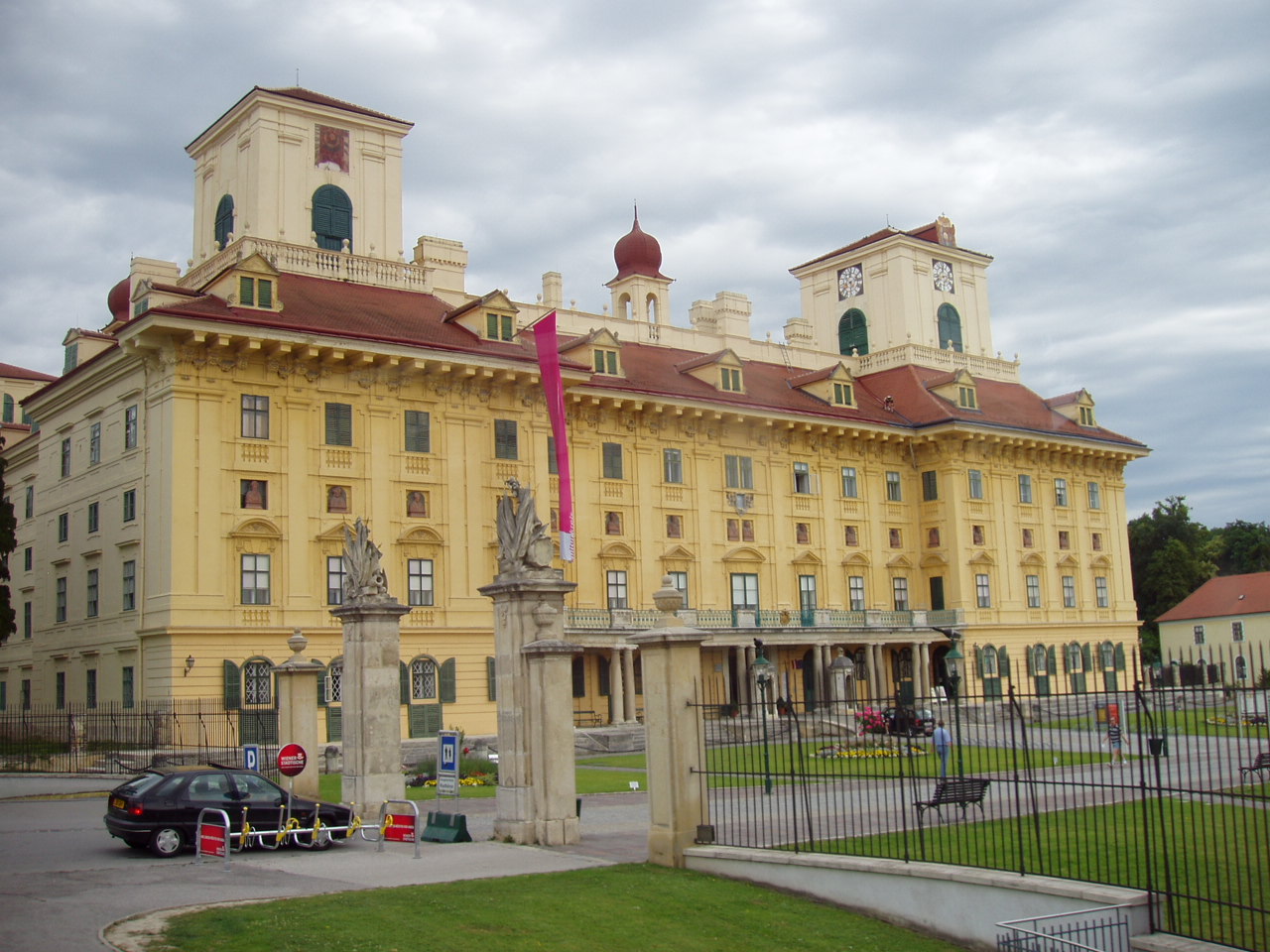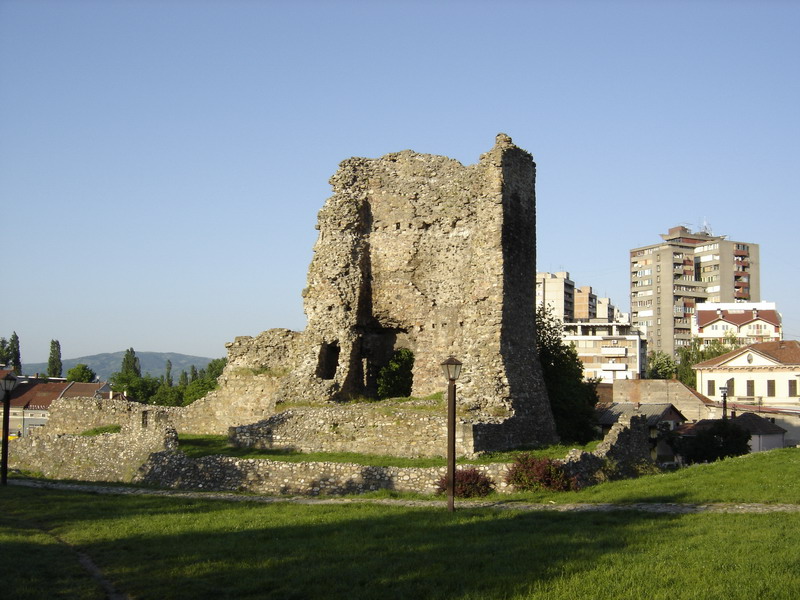|
Upper Nobility (Kingdom Of Hungary)
The upper nobility ( hu, főnemesség, la, barones) was the highest stratum of the temporal society in the Kingdom of Hungary until 1946 when the Parliament passed an act that prohibited the use of noble titles, following the declaration of the Republic of Hungary. Upper nobility In the course of the 11th to 15th centuries, only people who held specific high offices in the royal administration or in the Royal Households were distinguished by law within the nobility, but from the 16th century, families whose ancestors had been authorized by the monarchs to use a distinctive noble title (''e.g.'', baron, count) formed a hereditary social class. Its first members descended from the leaders of the Magyar tribes and clans and from the western knights who immigrated to the Kingdom of Hungary in the course of the 10-12th centuries. They were the "men distinguished by birth and dignity" ''(maiores natu et dignitate)'' mentioned frequently in the charters of the first kings. From the ... [...More Info...] [...Related Items...] OR: [Wikipedia] [Google] [Baidu] |
Legal
Law is a set of rules that are created and are law enforcement, enforceable by social or governmental institutions to regulate behavior,Robertson, ''Crimes against humanity'', 90. with its precise definition a matter of longstanding debate. It has been variously described as a Social science#Law, science and as the art of justice. State-enforced laws can be made by a group legislature or by a single legislator, resulting in statutes; by the executive through decrees and regulations; or established by judges through precedent, usually in common law jurisdictions. Private individuals may create legally binding contracts, including arbitration agreements that adopt Alternative dispute resolution, alternative ways of resolving disputes to standard court litigation. The creation of laws themselves may be influenced by a constitution, written or tacit, and the rights encoded therein. The law shapes politics, economics, history and society in various ways and serves as a mediator of ... [...More Info...] [...Related Items...] OR: [Wikipedia] [Google] [Baidu] |
Stefan Lazarević
Stefan Lazarević ( sr-Cyrl, Стефан Лазаревић, 1377 – 19 July 1427), also known as Stefan the Tall ( sr, Стефан Високи / ''Stefan Visoki''), was the ruler of Serbia as prince (1389–1402) and despot (1402–1427), diplomat, legislator, ktetor, patron of the arts, poet and one of the founding members of the Order of the Dragon. The son of Prince Lazar Hrebeljanović, he was regarded as one of the finest knights and military leaders at that time. After the death of his father at Kosovo (1389), he became ruler of Moravian Serbia and ruled with his mother Milica (a Nemanjić), until he reached adulthood in 1393. Stefan led troops in several battles as an Ottoman vassal, until asserting independence after receiving the title of ''despot'' from the Byzantines in 1402. Becoming a Hungarian ally in 1403–04, he received large possessions, including the important Belgrade and Golubac Fortress. He also held the superior rank in the chivalric Order of ... [...More Info...] [...Related Items...] OR: [Wikipedia] [Google] [Baidu] |
Despot (court Title)
Despot or ''despotes'' ( grc-gre, δεσπότης, despótēs, lord, master) was a senior Byzantine court title that was bestowed on the sons or sons-in-law of reigning emperors, and initially denoted the heir-apparent of the Byzantine emperor. From Byzantium it spread throughout the late medieval Balkans and was also granted in the states under Byzantine cultural influence, such as the Latin Empire, the Second Bulgarian Empire, the Serbian Empire and its successor states ( Bulgarian and sr, деспот, despót), and the Empire of Trebizond. With the political fragmentation of the period, the term gave rise to several principalities termed "despotates" which were ruled either as independent states or as appanages by princes bearing the title of despot; most notably the Despotate of Epirus, the Despotate of the Morea, the Despotate of Dobruja and the Serbian Despotate. In modern usage, the word has taken a different meaning: "despotism" is a form of government in whic ... [...More Info...] [...Related Items...] OR: [Wikipedia] [Google] [Baidu] |
Fyodor Koriatovych
Fedir Koriatovych also spelled Theodor Koriatovits ( uk, Федір Коріятович, lt, Teodoras Karijotaitis) (died 1414 in Mukachevo) was a Podolian prince from a Ruthenian branch of the Gediminids dynasty in what is now Ukraine. Son of Karijotas. Fedir inherited Navahrudak Castle from his father. After Grand Duchy of Lithuania gained Podolia as a result of the decisive victory against the Golden Horde at the Battle of Blue Waters in 1362, he with his three brothers were appointed by Grand Duke Algirdas to administrate the region. After the last of his brothers died circa 1389, he remained the sole administrator of Podolia for three years until his exile by the Grand Duke Vytautas the Great. In 1392 he disobeyed Vytautas the Great and was forced into exile. In 1396, Koriatovych purchased the city of Munkács in the Kingdom of Hungary (today Mukachevo, Ukraine), settling himself in the city's Palanok Castle, which would become one of the most protected castles in the re ... [...More Info...] [...Related Items...] OR: [Wikipedia] [Google] [Baidu] |
Władysław Opolczyk
Vladislaus II of Opole ( pl, Władysław Opolczyk, german: Wladislaus von Oppeln, hu, Oppelni László, uk, Владислав Опольчик; ca. 1332 – 18 May 1401), nicknamed Naderspan, was Duke of Opole from 1356, Count palatine of Hungary (1367–1372), Duke of Wieluń (1370–1392), Governor of Ruthenia (1372–1378), Count palatine of Poland (1378) as well as Duke of Dobrzyń, Inowrocław (1378–1392), Krnov and Kuyavia (1385–1392). Vladislaus was the eldest son of Duke Bolko II of Opole by his wife Elisabeth, daughter of Duke Bernard of Świdnica. Life Early years Vladislaus was a descendant of the House of Piast. Little is known about his youth. As a young prince, in order to gain more political experience, he went to Hungary around 1353, where he probably remained until the death of his father (1356). There he also got married. Duke of Opole After Duke Bolko II's death, Vladislaus and his brothers Bolko III and Henry inherited Duchy of Opole (then fiefd ... [...More Info...] [...Related Items...] OR: [Wikipedia] [Google] [Baidu] |
Dynasty
A dynasty is a sequence of rulers from the same family,''Oxford English Dictionary'', "dynasty, ''n''." Oxford University Press (Oxford), 1897. usually in the context of a monarchical system, but sometimes also appearing in republics. A dynasty may also be referred to as a "house", "family" or "clan", among others. Historians periodize the histories of many states and civilizations, such as Ancient Iran (3200 - 539 BC), Ancient Egypt (3100 – 30 BC) and Ancient and Imperial China (2070 BC – AD 1912), using a framework of successive dynasties. As such, the term "dynasty" may be used to delimit the era during which a family reigned. Before the 18th century, most dynasties throughout the world have traditionally been reckoned patrilineally, such as those that follow the Frankish Salic law. In polities where it was permitted, succession through a daughter usually established a new dynasty in her husband's family name. This has changed in all of Europe's remaining m ... [...More Info...] [...Related Items...] OR: [Wikipedia] [Google] [Baidu] |
Honorific
An honorific is a title that conveys esteem, courtesy, or respect for position or rank when used in addressing or referring to a person. Sometimes, the term "honorific" is used in a more specific sense to refer to an honorary academic title. It is also often conflated Conflation is the merging of two or more sets of information, texts, ideas, opinions, etc., into one, often in error. Conflation is often misunderstood. It originally meant to fuse or blend, but has since come to mean the same as equate, treati ... with systems of honorific speech in linguistics, which are grammatical or morphology (linguistics), morphological ways of encoding the relative social status of speakers. Honorifics can be used as prefixes or suffixes depending on the appropriate occasion and presentation in accordance with Style (form of address), style and Convention (norm), customs. Typically, honorifics are used as a Style (manner of address), style in the grammatical third Grammatical person, p ... [...More Info...] [...Related Items...] OR: [Wikipedia] [Google] [Baidu] |
Magnate
The magnate term, from the late Latin ''magnas'', a great man, itself from Latin ''magnus'', "great", means a man from the higher nobility, a man who belongs to the high office-holders, or a man in a high social position, by birth, wealth or other qualities in Western Christian countries since the medieval period. It also includes the members of the higher clergy, such as bishops, archbishops and cardinals. In reference to the medieval, the term is often used to distinguish higher territorial landowners and warlords, such as counts, earls, dukes, and territorial-princes from the baronage, and in Poland for the richest '' szlachta''. England In England, the magnate class went through a change in the later Middle Ages. It had previously consisted of all tenants-in-chief of the crown, a group of more than a hundred families. The emergence of Parliament led to the establishment of a parliamentary peerage that received personal summons, rarely more than sixty families. A similar ... [...More Info...] [...Related Items...] OR: [Wikipedia] [Google] [Baidu] |
Promulgation
Promulgation is the formal proclamation or the declaration that a new statutory or administrative law is enacted after its final approval. In some jurisdictions, this additional step is necessary before the law can take effect. After a new law is approved, it is announced to the public through the publication of government gazettes and/or on official government websites. National laws of extraordinary importance to the public may be announced by the head of state on national broadcast. Local laws are usually announced in local newspapers and published in bulletins or compendia of municipal regulations. Jurisdiction-specific details Armenia Bills are enacted by the President of Armenia and published in the '' Official Gazette of the Republic of Armenia''. Belgium Statutes are promulgated by the King of the Belgians and published in the '' Belgian Official Journal''. Decrees and Ordinances are promulgated by the different Regional and Community governments and published in ... [...More Info...] [...Related Items...] OR: [Wikipedia] [Google] [Baidu] |
Frankopans
The House of Frankopan ( hr, Frankopani, Frankapani, it, Frangipani, hu, Frangepán, la, Frangepanus, Francopanus), was a Croatian noble family, whose members were among the great landowner magnates and high officers of the Kingdom of Croatia in union with Hungary. The Frankopans, along with the Zrinskis, are among the most important and most famous Croatian noble families who, from the 11th to the 17th century, were very closely connected with the history, past and destiny of the Croatian people and Croatia. For centuries, members of these noble clans were the bearers and defenders of Croatia against the Ottomans, but also resolute opponents of the increasingly dangerous Habsburg imperial absolutism and German hegemony, which in the spirit of European mercantilism sought to consolidate throughout the Habsburg Monarchy. The past of these two clans is intertwined with marital ties, friendships and participation in almost all significant events in Croatia, especially on the b ... [...More Info...] [...Related Items...] OR: [Wikipedia] [Google] [Baidu] |





